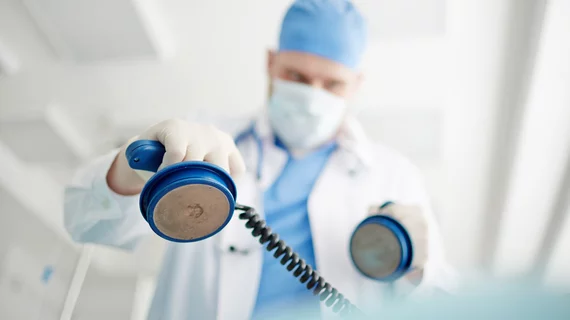The ‘weekend effect’ doesn’t apply to victims of cardiac arrest
The so-called “weekend effect”—that idea that patients admitted to the hospital on Saturdays, Sundays and holidays face greater odds of readmission down the line—doesn’t apply to victims of cardiac arrest, according to data presented at the British Cardiovascular Society Conference in Manchester June 2.
Rahul Potluri, founder of the ACALM study unit at Aston University in the U.K., led the research, which looked at five-year survival in 4,803 patients who suffered cardiac arrest. After adjusting results for age, gender, ethnicity and common causes of death in the area, Potluri and his team found no survival difference between patients admitted to the hospital on weekdays and those admitted on weekends.
“No matter which day of the week someone goes to hospital with a cardiac arrest, they have the same chance of survival, and that should be hugely reassuring to the public,” Potluri said in a release from the British Heart Foundation. “By no means is the weekend effect a blanket phenomenon.”
Past studies have published conflicting results, but we do know the weekend effect is applicable to some CV conditions, Potluri said, so it’s “important to tease out who is affected by the weekend effect through research in order to ensure that specialist healthcare services are delivered when and where they are needed most.”
A person’s chances of survival in an out-of-hospital cardiac arrest—which comprise the majority of cardiac arrests—hover around 10%. But Potluri and his colleagues said their results underline the necessity of fast-acting cardiac arrest teams who work around the clock to deliver the same standard of care all seven days of the week.
“You can’t choose when you’re struck down by a devastating cardiac arrest,” Shajil Chalil, a co-author on the paper and a consultant cardiologist at Blackpool Teaching Hospitals NHS Foundation Trust, said in the release. “But our research potentially highlights the major value of cardiac arrest teams in hospitals set-up to ensure optimal care for these heart patients every minute of every day.”

